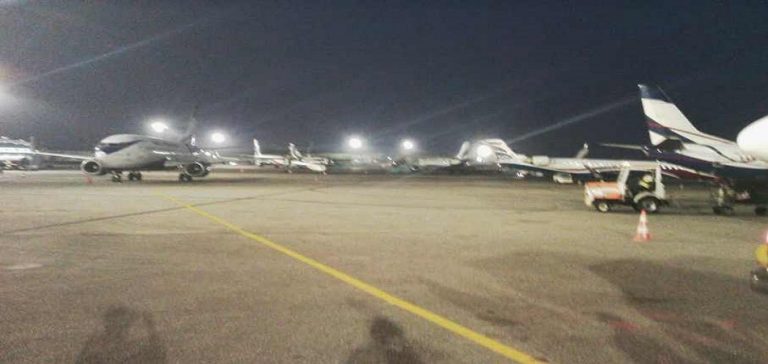
Airlines are always behaving like mini gods in Nigeria; they delay flights at will without any regard for the repercussions. They even reschedule or cancel flights at the boarding time with no just cause leaving some Passengers to feel that nothing can be done about it or that they are not entitled to seek damages and compensation.
Contrary to that notion which is understandably facilitated by the slow judicial system in Nigeria, airlines and even their directors, captains, pilots and the hosts/hostesses have been severally held accountable for their lackadaisical attitudes and fined millions of naira by both the courts and the federal consumer protection agency for flights delays, late boarding, flight reschedule or cancellation of flight or general mishandling of their passengers or their passengers’ luggages.
In 2020, the High Court of the federal capital territory fined Arik Air Ltd ten million naira as damages for delaying the flight of a passenger in the case of Mallam Isa Ibrahim Modibbo V Arik Air Ltd (2020) FCT High Court. One of the passengers, Mallam Isa Modibbo brought an action against Arik Air Ltd for delaying the flight without any reasonable justification causing him to skip taking his drugs. The court while delivering judgment in favor of the passenger held that the failure of the airline to fulfill its contractual obligation of airlifting the plaintiff from the scheduled location to another scheduled location at the stipulated time indicated on the flight ticket is a serious breach of contract and infringement of the
Register for Tekedia Mini-MBA edition 19 (Feb 9 – May 2, 2026): big discounts for early bird.
Tekedia AI in Business Masterclass opens registrations.
Join Tekedia Capital Syndicate and co-invest in great global startups.
Register for Tekedia AI Lab: From Technical Design to Deployment (next edition begins Jan 24 2026).
plaintiff’s right to free movement and this breach entitles the passenger to compensatory damages.
Even foreign airlines have been held liable and fined by Nigerian courts for delays, cancellation or mishandling of a passenger or a passenger’s luggage. In the case of BRITISH AIRWAYS v. ATOYEBI (2014) LPELR-23120(SC) the Supreme Court affirmed that airlines owe a duty of care to their passengers failure to fully live up to that duty will grant the passenger the right of action to seek compensation for damages.
In the above case, the respondent at the Supreme, Mr Atoyebi Oyetola, Muyiwa SAN was a first-class passenger of the Appellant’s flight, British Airways on 7th May 2000. He was flying from Heathrow Airport, London to Lagos, Nigeria and he was advised by the airline staff that his handbag was too bulky to be hand luggage and he was advised to check in the handbag. He obeyed and checked in the handbag, but on reaching Lagos, he was told that his checked-in bag was left in London. The airline subsequently failed to send the bag down to Lagos or release the bag to someone else and the respondent had to fly back to London for the sole purpose of getting the bag himself.
Subsequently, the passenger wrote to the airline requesting compensation and reimbursement for the money he spent flying himself back to London just to get the back bag but the airline failed to reimburse or compensate him. This led to the passenger filing an action at the federal high court Lagos for the compensation and the court held in his favor that he is entitled to be reimbursed and compensated by the airline. The appeal court and the Supreme Court concurred with the judgment of the high court.
In these mentioned cases and many other cases, we have seen airlines cautioned, chastised and even fined by the courts for mishandling passengers, canceling flights, delaying flights or acting as mini gods, this attests to the high-end legal principle that “no one is above the law”, not even airlines and this is, therefore, to say that any passenger who has been delayed by an airline with no reasonable justification or your flight canceled or rescheduled, or you have been mistreated by an airline, you are entitled to compensation by the airline or you will have a right to approach the court to seek damages.


